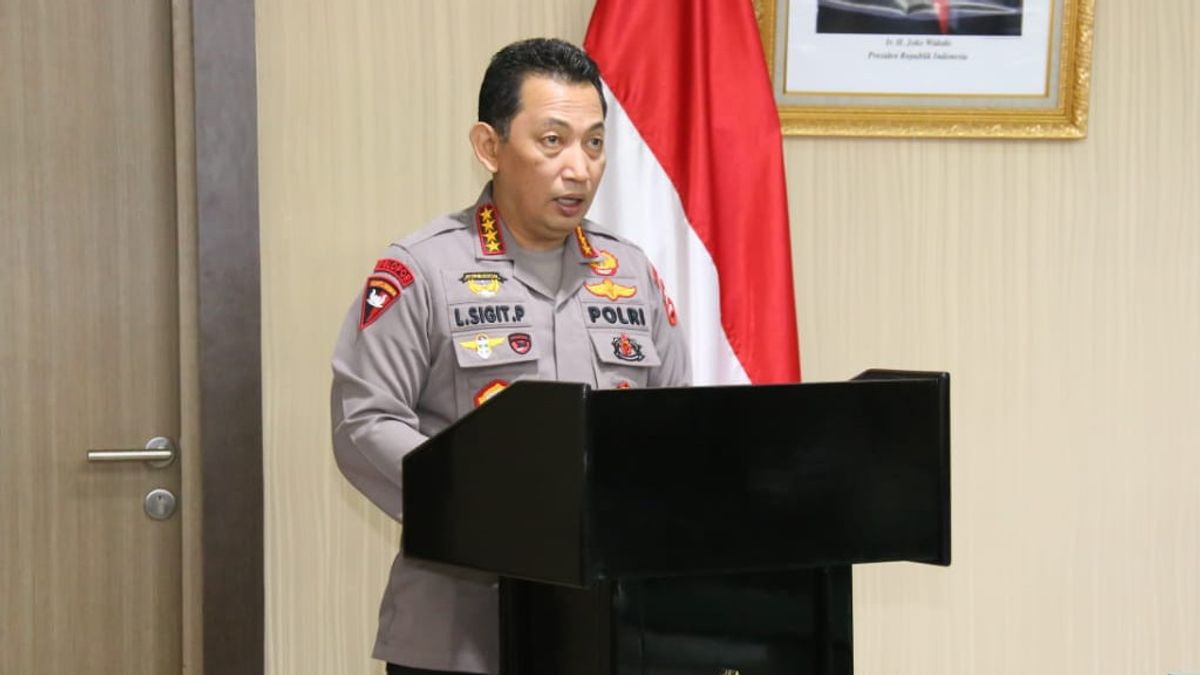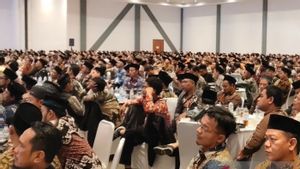JAKARTA - The National Police Chief, General Listyo Sigit Prabowo, proposes to impose strict sanctions on companies that are in the essential sector but do not apply the rules regarding the number of employees. The sanction can be in the form of closure.
"We also enforce the upstream sector's judicial operations. So if those who violate the provisions stipulated in the 50 percent essence, just take strong action, sir," said Sigit at the Java-Bali PPKM Virtual Press Conference, Monday, July 5.
The imposition of closing sanctions, continued Sigit, aims to provide a deterrent effect. So, other companies obey the rules that have been made and don't try to play by the rules.
"Just closed it. So there is a deterrent effect for others," he said.
Responding to the proposal, the Coordinating Minister for Maritime Affairs and Investment as well as the person in charge of Emergency PPKM, Luhut Binsar Pandjaitan agreed. In fact, he asked the National Police Chief to conduct patrols to check the condition of essential sector companies. "Agreed," said Luhut.
"If it is possible, joint patrols can be made to occasionally see the offices of these companies that are not compliant, and given a warning if the second day is still like that, I think action needs to be taken," he continued.
For information, the Java-Bali emergency PPKM rules for essential sector offices apply a maximum of 50 percent of work from office (WFO) employees with a health protocol and for critical sectors a maximum of 100 percent of WFO employees are allowed with a health protocol.
The essential sectors include finance and banking, capital markets, payment systems, information and communication technology, non-COVID-19 quarantine handling hotels, and export-oriented industries.
The coverage of critical sectors is energy, health, security, logistics and transportation, food, beverage and supporting industries, petrochemicals, cement, national vital objects, disaster management, national strategic projects, construction, basic utilities (such as electricity and water), and fulfillment industries. basic daily needs of the community.
Supermarkets, traditional markets, grocery stores, and supermarkets selling daily necessities are limited to operating hours until 20.00 local time with a capacity of 50 percent of visitors. Pharmacies and drug stores can be fully open for 24 hours.
The English, Chinese, Japanese, Arabic, and French versions are automatically generated by the AI. So there may still be inaccuracies in translating, please always see Indonesian as our main language. (system supported by DigitalSiber.id)













